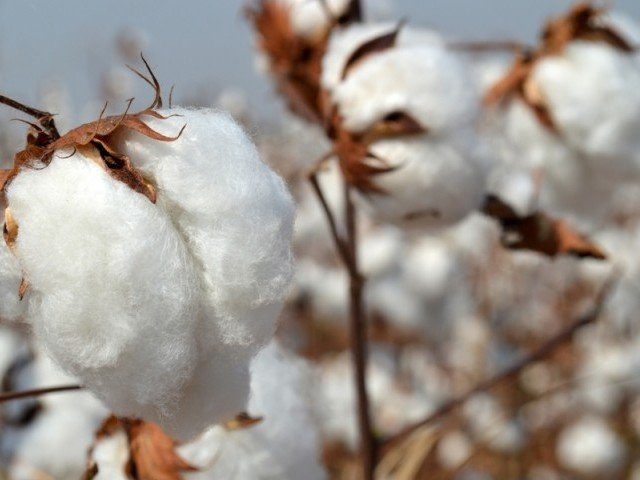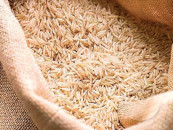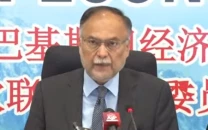The cotton import and growers’ issue
APTMA, farmers on opposing side as govt blames low growth on poor crop

APTMA, farmers on opposing side as govt blames low growth on poor crop. PHOTO: FILE
The current development, in which the association and cotton farmers are on two opposite sides, has created problems for the government that has blamed low economic output in fiscal year 2015-16 on poor cotton crop.
For the last many weeks, Aptma has been opposing the demands of the Senate Standing Committee on National Food Security and Research to immediately ban cotton imports from India.
After lengthy debates, the committee reached a conclusion that imports are detrimental for the local crop and the farmers’ interest. Minister for National Food Security Sikander Hayat Bosan, who himself is a farmer from Punjab, has been supporting the ban. But somehow Aptma has sustained that pressure.

During his visit to Karachi, Boson squarely blamed Aptma for the problems of cotton growers. “Pakistan’s cotton-cultivated area is continuously shrinking because the textile industry is not paying enough to farmers and this is why they are shifting to other crops,” he said.
Aptma’s argument
Aptma has an altogether different point of view. It believes the government is part of the problem and not the solution.
It says the government is the real wrongdoer because it collects Rs800 million in the form of Cotton Cess for cotton research, but does not spend the amount properly and hence the country is facing perpetual cotton shortages for decades.
Pakistan has been left much behind compared to India in developing better seeds. The textile industry says it is the duty of cotton scientists in Pakistan Central Cotton Committee to introduce new varieties of cotton seeds to obtain maximum yield so that our consumption requirement is met by the local cotton.
Pakistan’s total cotton consumption is around 16 million bales (one bale is equal to 170kg) and it annually imports 2-3 million bales. However, due to the extreme weather conditions, the crop this year declined by 35% or just 9.7 million bales, which is lowest in a decade.
“Cotton imports are expected to double this year. Imports had already crossed 3 million bales (based on the latest data) by April and are expected to cross over 4 million bales by the end of June 30th, 2016,” an Aptma official informed on condition of anonymity.
Pakistan is the fourth largest producer of cotton in the world, behind China, India, and the United States. But cotton import bill is also expected to swell this year from $250-400 million to over $1 billion, which will be a significant drain on country’s foreign reserves. Pakistan’s cotton imports from India have proved to be a win-win for both neighbours. Pakistan prefers cotton imports from India because of lower freight charges and this has also helped India, which has a cotton surplus.
The minister says Trading Corporation of Pakistan (TCP) has over 350,000 bales of fine cotton but ginners and the Aptma are not buying from it.
On the other hand, Aptma Chairman Tariq Saud told The Express Tribune that the cotton in TCP stocks is not only of low quality but also short in quantity. Independent observers also support Aptma’s claim that TCP’s stocks are not even 100,000 bales.
“When you don’t have the right quality as well as quantity, you have to import the raw material to meet export targets even if it hurts your profitability,” he said while speaking about the profitability of textile exporters.
Experts say this year’s cotton crop was destroyed because of the use of substandard and uncertified seeds, low use of pesticides especially in Punjab and untimely excessive rains in different parts of the country. This has nothing to do with Aptma payments to farmers as claimed by the minister.
Due to below target agriculture growth, Pakistan failed to achieve Gross Domestic Product’s (GDP) target in outgoing fiscal year. It is time that the government understands why Pakistan’s agriculture is lagging behind other sectors and carves out a strategy to increase crops output for next year.
The writer is a staff correspondent
Published in The Express Tribune, June 20th, 2016.
Like Business on Facebook, follow @TribuneBiz on Twitter to stay informed and join in the conversation.



















COMMENTS
Comments are moderated and generally will be posted if they are on-topic and not abusive.
For more information, please see our Comments FAQ